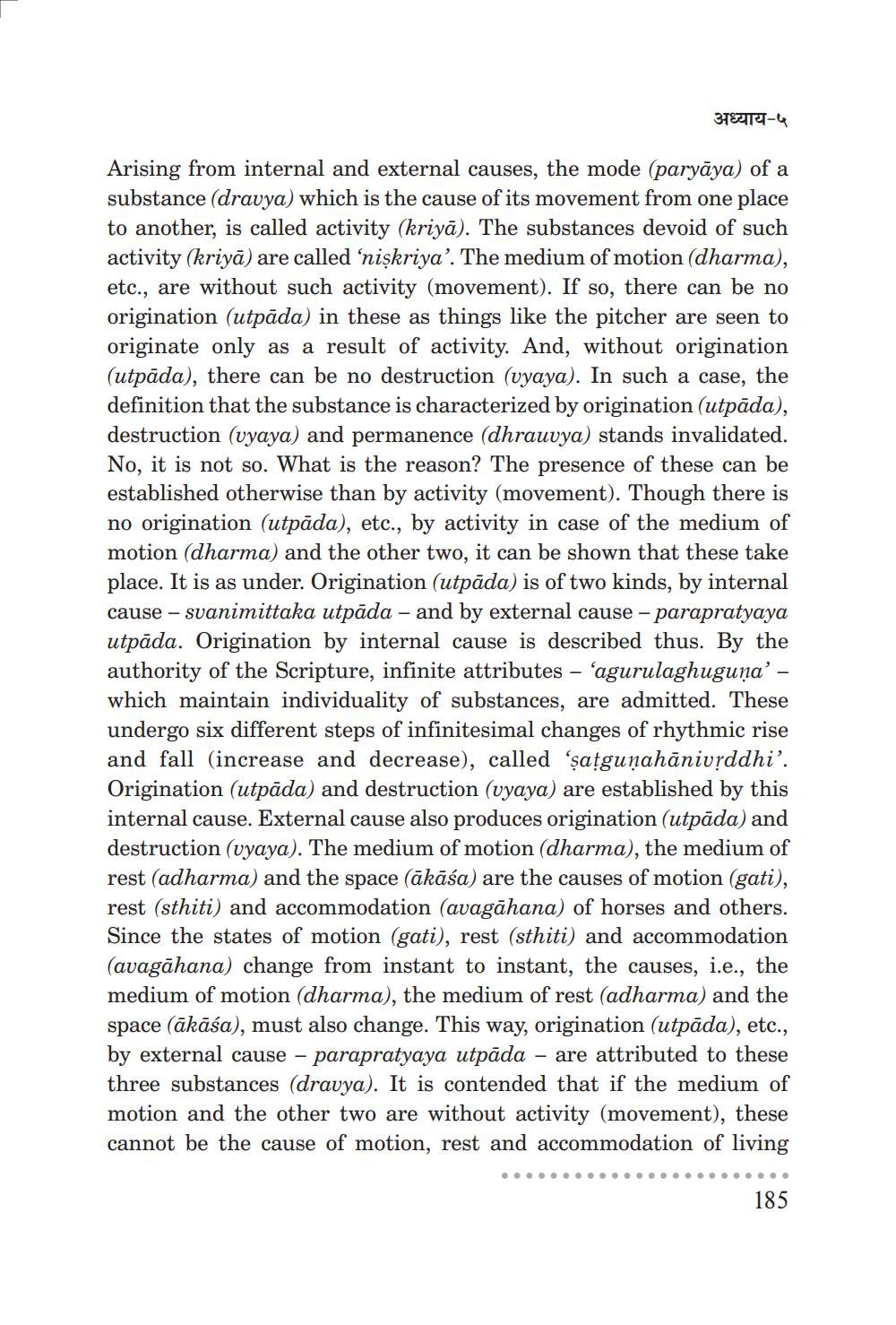________________
अध्याय-५
Arising from internal and external causes, the mode (paryāya) of a substance (dravya) which is the cause of its movement from one place to another, is called activity (kriyā). The substances devoid of such activity (kriyā) are called 'niskriya'. The medium of motion (dharma), etc., are without such activity (movement). If so, there can be no origination (utpāda) in these as things like the pitcher are seen to originate only as a result of activity. And, without origination (utpāda), there can be no destruction (uyaya). In such a case, the definition that the substance is characterized by origination (utpāda), destruction (uyaya) and permanence (dhrauvya) stands invalidated. No, it is not so. What is the reason? The presence of these can be established otherwise than by activity (movement). Though there is no origination (utpāda), etc., by activity in case of the medium of motion (dharma) and the other two, it can be shown that these take place. It is as under. Origination (utpāda) is of two kinds, by internal cause – svanimittaka utpāda – and by external cause - parapratyaya utpāda. Origination by internal cause is described thus. By the authority of the Scripture, infinite attributes – ‘agurulaghuguņa' - which maintain individuality of substances, are admitted. These undergo six different steps of infinitesimal changes of rhythmic rise and fall (increase and decrease), called 'sațguņahānivệddhi'. Origination (utpāda) and destruction (vyaya) are established by this internal cause. External cause also produces origination (utpāda) and destruction (uyaya). The medium of motion (dharma), the medium of rest (adharma) and the space (ākāśa) are the causes of motion (gati), rest (sthiti) and accommodation (avagāhana) of horses and others. Since the states of motion (gati), rest (sthiti) and accommodation (avagāhana) change from instant to instant, the causes, i.e., the medium of motion (dharma), the medium of rest (adharma) and the space (ākāśa), must also change. This way, origination (utpāda), etc., by external cause - parapratyaya utpāda – are attributed to these three substances (dravya). It is contended that if the medium of motion and the other two are without activity (movement), these cannot be the cause of motion, rest and accommodation of living
...
....................
185




